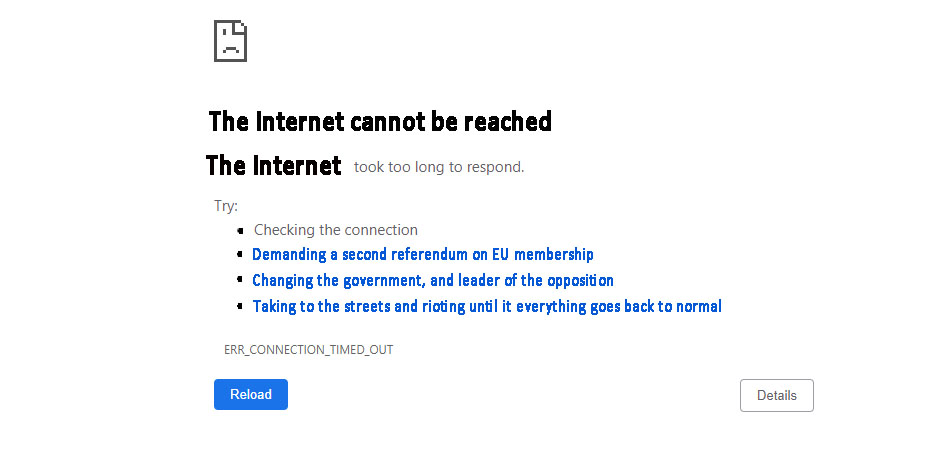A “top secret” government working group is conducting an assessment on the viability of “temporary Internet shutdowns” to offset anticipated power shortages after the UK leaves the European Union on March 29th.
Speaking to LCD views on condition of anonymity, a senior Whitehall source confirmed that a special working group code-named “Dept Against Reactionary Communication”, or DARC for short, is conducting stress tests on vital infrastructure and services to confirm whether they will continue working in the event of enforced Internet cuts.
“The Internet uses an enormous amount of power – as much as 5 Terawatt hours (TWh) a year, around 8% of total consumption – or almost as much as Jacob Rees Mogg’s bitcoin mining operations, which obviously we can’t shut down…haha..,” he said explaining that temporarily shutting down access on a regional basis would help offset the need for wider power cuts.
“People just don’t realise how power hungry the Internet is, and how much of the content is just snide and arguably treasonous criticism of her majesty’s government,” he cautioned, explaining that shutting off a single satirical article shared on Facebook could light a city like Sunderland for a whole hour.
“Not that it would help them see any more clearly,” he sniggered.
However he confirmed that the government is aware of the possible downside to cutting of net access, namely what occurred in the early 1970s when the then Conservative government responded to coal and power workers’ strikes by shutting off all television channels at 10.30pm to save power.
“Yes we are aware that listening to the radio became the second most popular replacement for watching TV, with inevitable consequences for the birth rate,” he confirmed.
“Not worry though, that won’t be a problem once we’ve closed all the remaining maternity and ante-natal units, sent back all the foreign paediatricians and GPs, and got the infant mortality rate back to an acceptable third world level,” he smirked.


